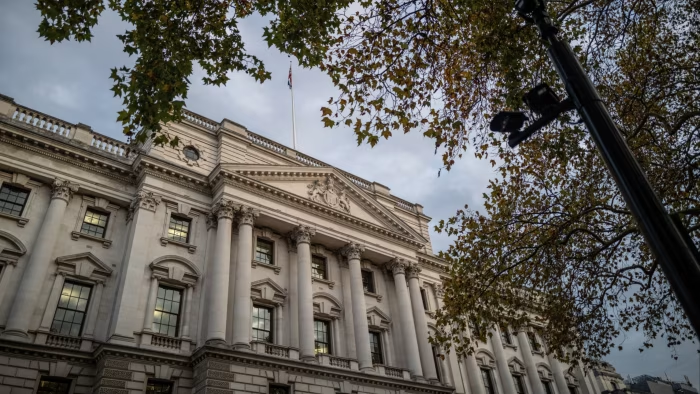Unlock the Editor’s Digest for free
Roula Khalaf, Editor of the FT, selects her favourite stories in this weekly newsletter.
Rachel Reeves risks hurting small business owners and damaging investor confidence in the UK if she goes ahead with proposals to increase taxes on dividends in this month’s Budget, wealth managers and bankers have warned.
The chancellor is considering raising dividend taxes on November 26, in a move that the Resolution Foundation think-tank has said would raise £1.5bn, according to people familiar with the situation.
The deliberations come as the Treasury looks to fill a fiscal hole estimated at between £20bn and £30bn in the Budget, with a wide range of tax rises under consideration.
Individuals who earn dividends from a wide range of stocks and shares pay a tax on those earnings according to income bands. At present, basic rate taxpayers are charged 8.75 per cent, with higher rate taxpayers paying 33.75 per cent and additional rate payers charged 39.35 per cent.
In a report in September, the Resolution Foundation said the basic rate of dividend tax was “too low” compared with other UK taxes such as capital gains — at 18 per cent for basic rate — and rates set by international peers.
The influential think-tank called for the basic rate of dividend tax to rise to 16.5 per cent, which would generate an extra £1.5bn for the Treasury.
The Treasury declined to comment. People familiar with the matter said Reeves was considering an increase smaller than the rise to 16.5 per cent urged by the think-tank.
But Jason Hollands, managing director at wealth manager Evelyn Partners, said increasing dividend tax rates would “clobber small business owners” because many took a large portion of their pay through dividends.
“This will be seen as a kick in the teeth to people who take a risk by running their own businesses,” he added.
In addition to business owners, the potential changes would hit investors holding stocks outside of tax-free wrappers such as Isas and pensions.
Emma Wall, chief investment strategist at Hargreaves Lansdown, said the prospect of higher dividend taxes “seems counter to the government’s great initiatives to encourage retail flows, and in turn, domestic investment to spur economic growth”.
Any move to increase dividend taxes would be another blow to investors after the previous Conservative government cut the annual tax-free dividend allowance to £500 from April 2024, down from £1,000 the year before and from £5,000 in 2017-18.
Steven Fine, chief executive of investment bank and broker Peel Hunt, said higher dividend taxes would “be a sure fire way of raising less tax”, with companies able to pare back dividend payouts and instead use excess capital to buy back their own shares.
Ministers have sought to encourage pension funds and retail investors to back British companies in a bid to revive the UK’s moribund capital markets, with Reeves exploring in recent months a cut in the cash Isa allowance in order to funnel more money into stocks.
But Sanjiv Tumkur, head of equities at wealth manager Rathbones, said higher dividend taxes “could discourage investment in income stocks” that were “well represented in the UK market”.
“If investors begin shifting away from income stocks, they may turn to growth stocks instead . . . This could result in capital flowing out of the UK market in search of better growth opportunities abroad,” he added.
